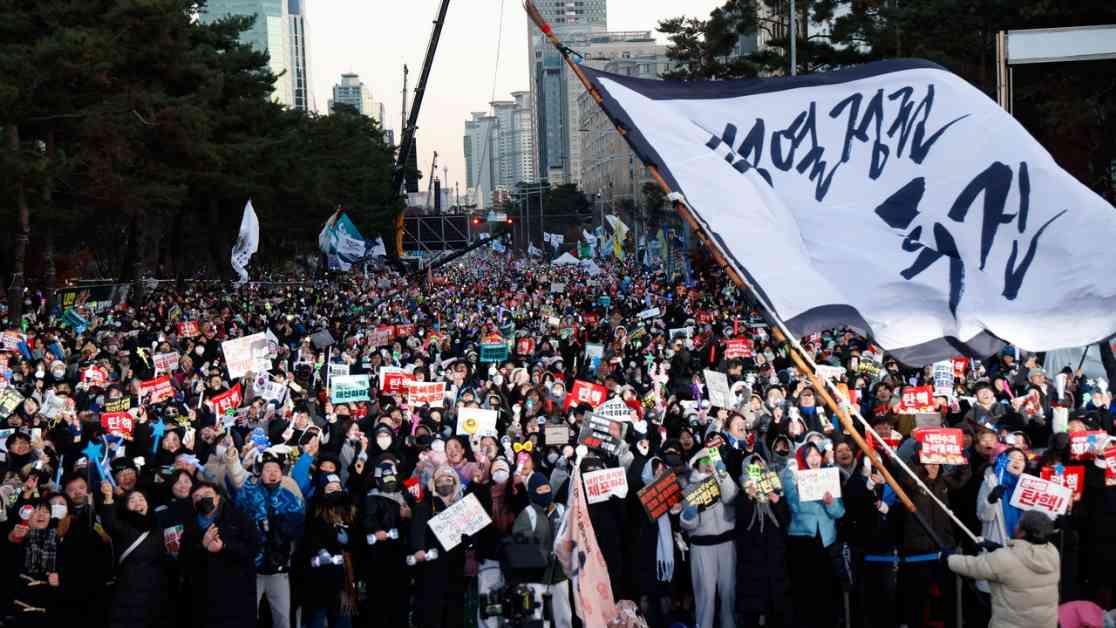Resisting Autocracy in South Korea: A Blueprint for Democracy
On a chilly Saturday evening, a week and a half after South Korea’s President, Yoon Suk-yeol, declared martial law and unleashed soldiers against his own people, a historic moment unfolded. The National Assembly voted to strip him of his power, with a resounding two-thirds majority, including members of Yoon’s own party. The backdrop to this monumental decision was the sight of over a million Koreans converging around the parliamentary complex in Seoul, chanting, singing K-pop songs, and waving glow sticks and signs demanding Yoon’s arrest for treason. It was a defining moment that underscored the power of unity and democracy.
Impeachment Process Unfolds
The impeachment decision now rests in the hands of the Constitutional Court, which will undertake a thorough review before reaching a final verdict. Yoon, in a televised address, expressed his determination, stating, “Although I am pausing for now, I will never surrender.” This move comes after a tumultuous tenure marked by controversies and scandals that have rocked the nation.
Unprecedented Events Unfold
The events leading up to Yoon’s impeachment were nothing short of extraordinary. From the late-night imposition of martial law to the swift reversal by the legislature, the people of South Korea bore witness to a critical juncture in their democracy. Yoon’s actions, including ordering raids on government offices and attempting to block the National Assembly, sent shockwaves through the country. However, the resilience of the citizens, lawmakers, and even the military, who refused to comply with unlawful orders, ultimately prevailed.
Lessons for Democracy
The events in South Korea serve as a cautionary tale and a beacon of hope for democracies worldwide. The power of public participation, institutional checks and balances, and a steadfast commitment to democratic values have proven to be crucial in times of crisis. As the nation navigates the aftermath of Yoon’s impeachment, the focus now shifts to rebuilding and strengthening democratic institutions to prevent future threats to the country’s stability.
As we reflect on the resilience and determination of the Korean people in the face of authoritarianism, it begs the question: How far are we willing to go to defend our democracy? The events in South Korea serve as a stark reminder of the fragility of democratic norms and the importance of remaining vigilant in safeguarding our rights and freedoms. Let us draw inspiration from the courage of the Korean citizens and work towards a future where democracy thrives and autocracy is unequivocally rejected.












